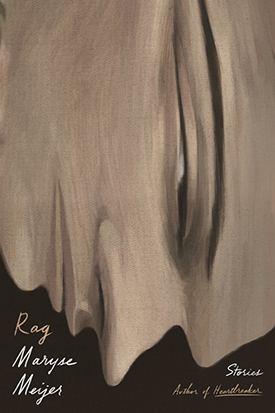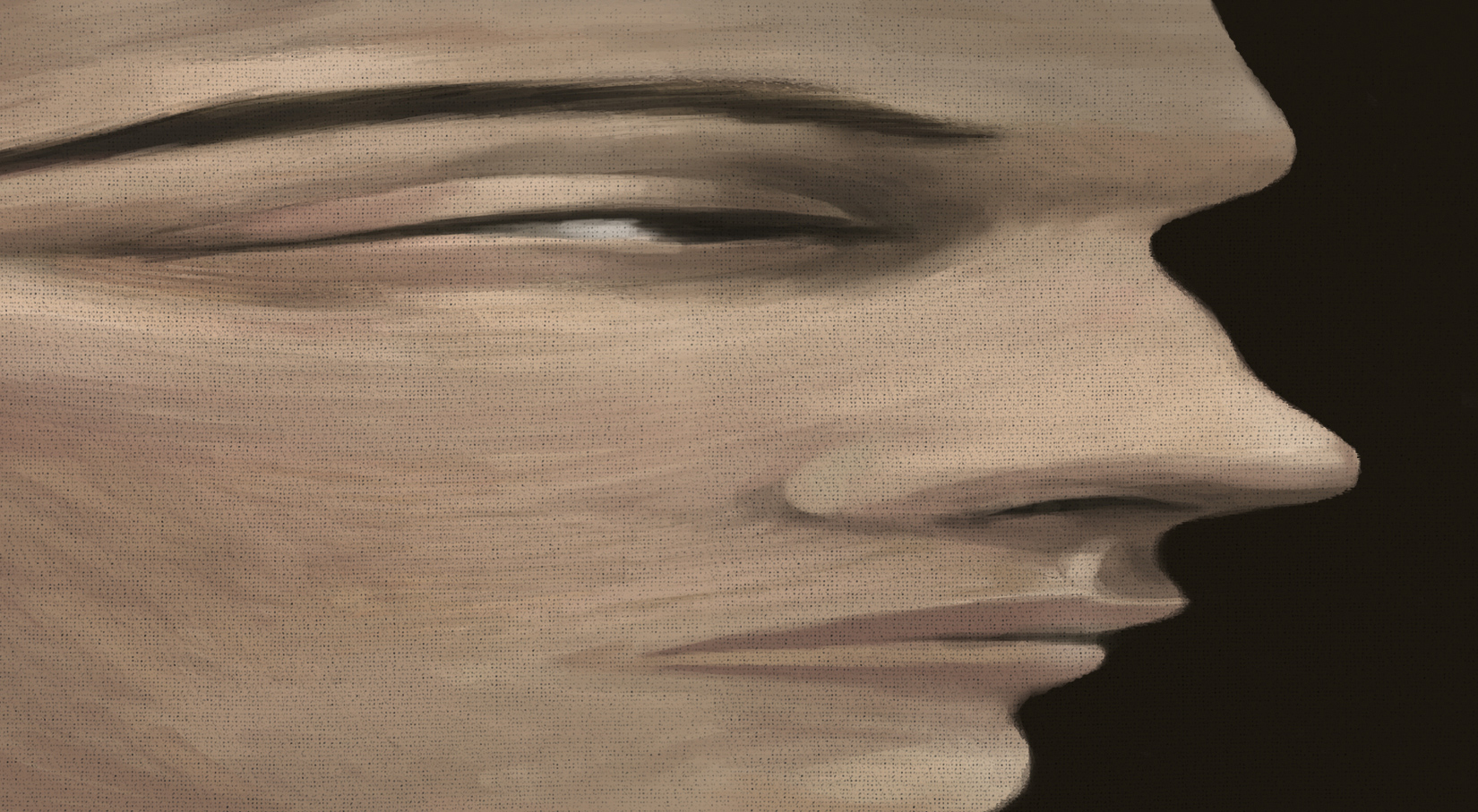
“Leon felt nothing but horny for Nate at this point. That hurt. Everything was hateful apart from how wildly he longed for that fucker.” —Period
Sometimes a line in someone else’s book will tell you, more clearly and succinctly than you have ever been able to tell yourself, what your own work is all about. I was reading Dennis Cooper’s Period—the last of five slim novels that make up the George Miles cycle—when I came across the line quoted above. I stopped reading, opened my laptop, and waited. And within an hour I had sketched a draft of what would become the story “Pool,” included in my latest collection, Rag. It is a love letter to Cooper’s work, inspired by it and responding to it; and it is, also, in a way, about Cooper’s stories, a work that mimes his rhythms and obsessions in order to understand its (and my) own.
“Pool” is about a teacher, Bobby, who falls into a pool during his high school’s lifeguard coaching session; the lifeguard who helps rescue him, Jacob, translates the disturbing experience into an erotic one, as, eventually, does Bobby. The two talk on the phone a couple of times, sit in a car, exchange some glances on school grounds, but they never have sex. Now, if “Pool” was a Dennis Cooper story, not only would the two fuck, but one or both of them would be narcotically impaired while fucking, and probably one of them would die, or, at the very least, suffer a serious beating in the process, and maybe someone would quote lyrics from a Satanic metal band or a third party would film the proceedings while contemplating suicide, rape, kidnapping, or all three at once, before sliding suddenly into an alternate dimension where dead boys speak to themselves through dark mirrors, still longing, still hurting. In much of Cooper’s work, sexual desire is inextricable from violence; the desire to fuck is about the desire, ultimately, to consume the beloved, or be consumed. Unfortunately for most of Cooper’s men, even the ultimate consumption—murder, death—is usually anti-climactic; whoever survives is either disappointed or perpetually un-sated. The problem of desire is never resolved; it is, to quote Bobby, “a dead end.”
As a writer, I’m very interested in these dead ends; the dead end is where I like to hang out.
As a writer, I’m very interested in these dead ends; the dead end is where I like to hang out. For “Pool,” I wanted to know what it might feel like to form an attachment to someone solely on the basis of death; to explore, as Cooper does, death as queer-high-school-cupid, death as the broody stranger a bored couple might invite into their bed to shake a stale relationship up a bit. But while I consume—and seek out—quite a lot of explicitly violent and sexual work, I don’t write it (or, well, by my standards I don’t; others may disagree). And there’d be no point, anyway, in writing “Pool” as Cooper would; writing in homage to another writer requires that you translate something of theirs into your own language, to approach their literary problems from your own perspective. If I cut out every act of literal violence and replaced it with the potential for violence, could I make Jacob’s near-annihilating longing for Bobby as palpable on the page as Cooper makes Leon’s? What would withholding achieve—for the reader, the story, for me? And why, anyway, do I feel the need to hold back in this way in the first place, when I am so attracted to writers who don’t?
Even if my characters never go quite as far as Cooper’s in their transgressions against themselves and others, all of them—his and mine—end up in the same place; of not quite having what they wanted, of still wanting more; love, a connection, a demolition of mental and emotional impotence. They never quite get there, wherever there is. But I think the here of where they find themselves is more the point; there is rarely resolution, rarely a strong linear movement, in our work because, perhaps, we’re not interested in looking away from the objects of our obsessions towards a way out. We’re looking for a way in. And the exit—well, that is left, instead, to the reader to discover.
So, what comes of all these dead ends? “Pool” starts in the water, and finishes there; Period begins and ends with a description of a small town where no one will be “moved enough to tell anyone they’ll ever know” that they’ve ever even seen it. But that doesn’t mean that I, or Cooper, don’t care about other kinds of movement within the text, that wallowing, for lack of a better word, is the goal. Rather, instead of pushing revelation to the end of the story, to have the light turn on at the last moment, I think of these kinds of stories as being entirely revelatory—as working, as Cooper’s work does for me, as a kind of continual shock to the heart, in the most productive, medical sense; a shock that doesn’t aim to hurt you, but to heal you, to move you into a different state of mind. The world of the story might remain largely unchanged; people may not get “better,” or be better, or do better, but you might. In refusing to solve a character’s dilemmas, to show only the trouble, and not its source or its resolution, the writer places the moral charge of transformation on to the reader; the discomfort, sadness, or horror that the work inspires might provoke the reader into asking: how can I change? How can I better confront the things that are broken within myself, and the world around me? To be repulsed by something—while perhaps, at the same time, being titillated by it, or identifying with it—is a sign that there is something in what is repelling us that is worth paying attention to. Instead of looking away, I would hope that readers—mine and Cooper’s and the world’s—would dare to look closer, to examine their discomfort, their identification, their own shame or abjection or despair, and connect with it. And maybe, through that connection, there is some wisdom to be had; wisdom that can be pulled from the page and made manifest in the real world.
The world of the story might remain largely unchanged; people may not get “better,” or be better, or do better, but you might.
While Cooper’s work is, certainly, full of cruelty, violence, and terminally unsavory people, it is also, at its heart, compassionate. I can’t help but feel that his stories are laments; lamenting, partly, that so few are willing to go where his people go. When Bob, another character from Period (and my Bobby’s namesake), commits suicide, Cooper writes: “When the embers went out, Bob slipped a gun from his coat, and located his head. Back in town, his death made this noise like when any guy killed something out in the woods, so no one heard.” But Cooper hears; and so, because of him, do we. Though his work does not often offer a way out of its emotional black holes, it is deeply sympathetic to those holes; it honors them by attending to them, by placing them before the reader’s consciousness and saying, look, feel this. Be here with these people, who are going to places maybe you have gone, or thought about going, or seen other people go. Cooper’s not going to explain to you why people are the way they are; he’s just going to present their being, moving in broken circles, on the page for you to do with what you will. And I try to do much the same. Reading through Cooper’s obsession with desire and violence made me more curious about my own. When I feel myself shying away from a story that wants to be written, I pick up Cooper; and whenever I feel I have gone too far, made something too ugly, I can return to him and breathe a sigh of relief; at least, I think, it’s not as bad as all that.
Cooper’s not going to explain to you why people are the way they are; he’s just going to present their being, moving in broken circles.
Maryse Meijer is the author of the story collection Heartbreaker (FSG, 2016), which was one of Electric Literature’s 25 Best Short Story Collections of 2016. Her work has appeared in Meridian, Portland Review, Washington Square Review, Indiana Review, and actual paper. She lives in Chicago.
